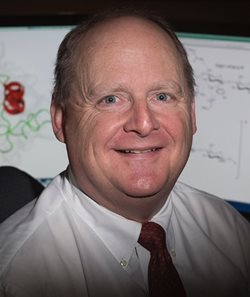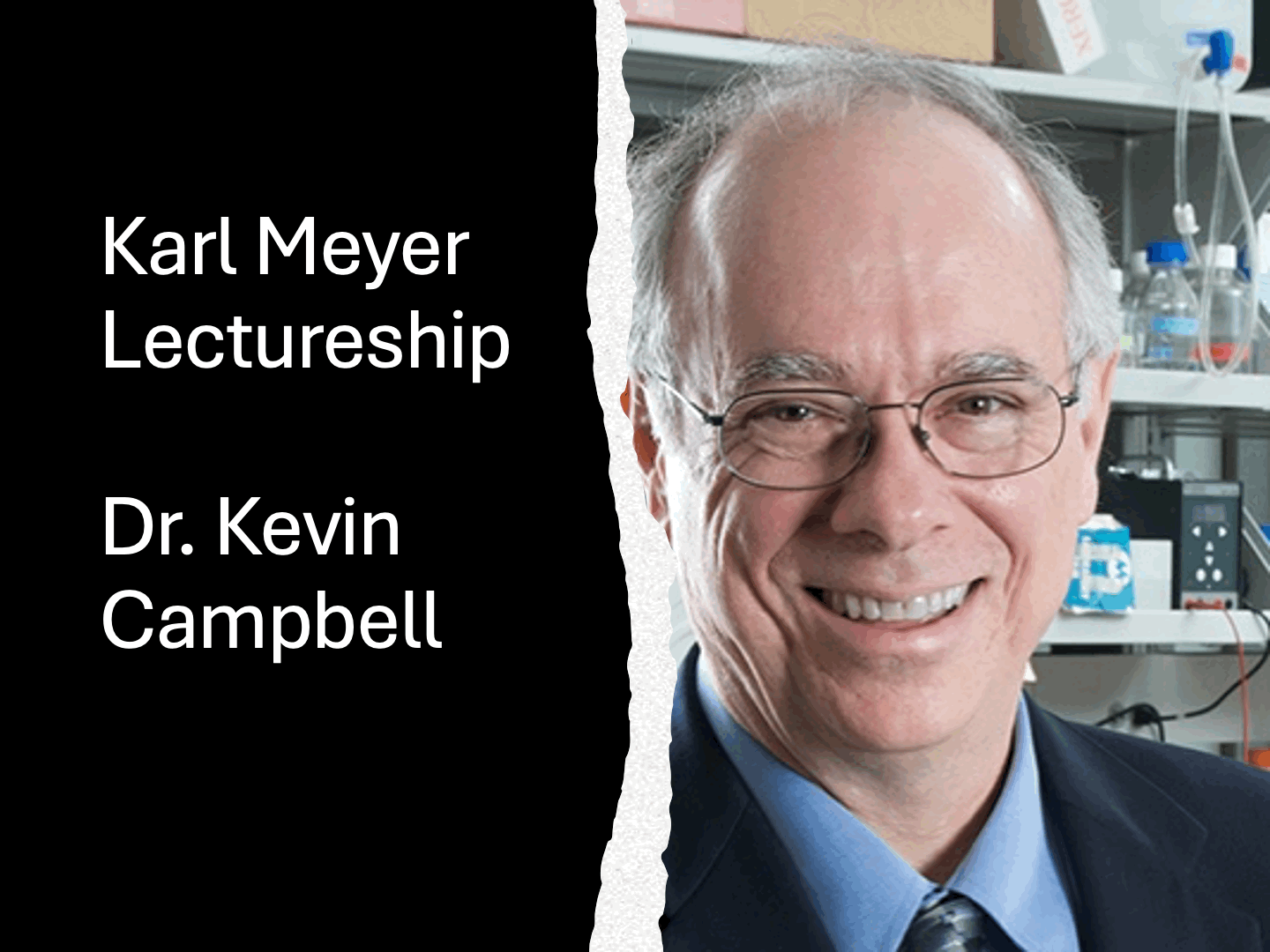2020 Award Winner - Dr. Kelley W. Moremen
 The Karl Meyer Lectureship Award was established in 1990 to honor the distinguished career of Karl Meyer and his outstanding contributions to the field of Glycobiology. This international award is given to well-established scientists with currently active research programs who have made widely recognized major contributions to the field of Glycobiology.
The 2020 Karl Meyer Award was presented to Dr. Kelley W. Moremen, a Distinguished Research Professor in the Department of Biochemistry and Molecular Biology and the Complex Carbohydrate Research Center at the University of Georgia. Kelley did his graduate work with Oscar Touster at Vanderbilt and postdoctoral work with Phillips Robbins at MIT, two giants in our field. During this time he published nearly a dozen papers focusing mainly on the identification and characterization of ER and Golgi mannosidases. He was recruited to the Complex Carbohydrate Research Center (CCRC) at the University of Georgia in 1991 where he rose through the ranks to Associate Professor in 1997, Professor in 2003, and ultimately Distinguished Research Professor in 2014. He has recently been appointed Associate Director for Commercialization at the CCRC because he has patented several of his discoveries (he is currently an inventor on 10 patents) and started several glyco-related companies. For example, he co-founded Glycobiotics in 1996, founded and serves as CEO of Glyco Expression Technologies since 2018, has served as Senior Vice President for Third Floor Therapeutics since 2018, and served on the Scientific Advisory Boards of five other companies.
Kelley’s lab has contributed to many aspects of glycobiology, publishing over 160 peer-reviewed articles to date. His lab has made major contributions to our understanding of the structure and function of both glycosyltransferases and glycosidases and of protein interactions with glycosaminoglycans. However, his major contributions have been in developing methods and technologies used by others to advance our knowledge of Glycobiology. For instance, his lab generated methods to analyze the “Glycotranscriptome”, measuring transcript levels of all known glycosyltransferases and glycosidases in a given system (see http://glycoenzymes.ccrc.uga.edu/lab/). They used this to evaluate the correlation between transcript levels and expressed glycans in many systems, including mouse embryonic stem cells (Nairn et al. (2012) J. Biol. Chem. 287, 37835). More recently, with the assistance of Don Jarvis and Josh LaBaer, they created the glycoenzyme repository, which is a source of expression tools for all known human glycosyltransferases and glycosidases (Moremen et al. (2018) Nat. Chem. Biol. 14, 156). These reagents are freely available through their website (http://glycoenzymes.ccrc.uga.edu/lab/). They have already been used by multiple groups to foster our understanding of the structure and function of these enzymes. Other groups have used them as reagents to produce complex glycan structures in vitro. The cumulative impact of these resources is huge.
Beyond providing these valuable resources to the community, Kelley’s own research on the structural basis of substrate recognition by glycosyltransferases and glycosidases has been transformational, generating new insight regarding the inter-relatedness of these enzymes and their mechanisms of action. With assistance of key collaborators including Boons, Wood, Kannan and others, his group has demonstrated the existence of shared core catalytic machineries that place substrates in similar orientations despite different specificities. This work has also demonstrated the evolutionary impact of variable loops surrounding the core machinery for generating new substrate specificities. These concepts are described in several recent publications for which Kelley deserves significant credit (Kadirvelraj et al. (2018) PNAS 115, 4637; Moremen and Haltiwanger (2018) Nat. Chem. Biol. 15, 853; Taujale et al. (2020) eLife 9, e54532). Kelley’s recognition of the community’s need for this glycoenyme repository and the need to control the quality and quantity of these proteins for structural analysis will continue to shape glycobiology and yield high impact research.
In addition to his scientific contributions, Kelley has served the glycobiology community in many ways. In addition to serving on NIH study sections and Editorial Boards of Glycobiology, Glycoconjugate Journal, and the Journal of Biological Chemistry, Kelley has served at all levels in the Society for Glycobiology: Board of Directors (1998-2003), Secretary (2005-2015, and everyone who has served as President of the Society knows that the Secretary is the most important leadership position for the SFG), President-elect (2017) and President (2018). He also served as the Chair of the 2013 Glycobiology Gordon Research Conference.
In summary, Kelley is the glycobiologist’s glycobiologist. His entire career has been focused on understanding the biosynthesis and function of complex carbohydrates. His lab has generated numerous resources for the Glycobiology community, and he has served the community in multiple ways. Thus, he is highly deserving of the Karl Meyer Lectureship Award, the highest award given by the Society for Glycobiology.
|


